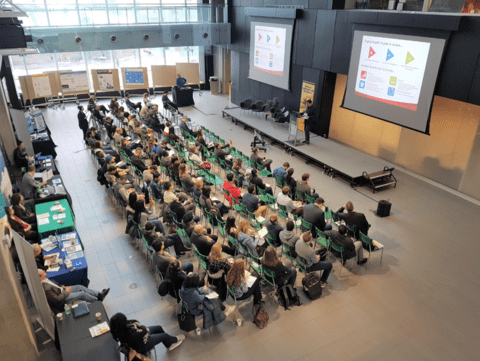Self-powering water leak sensor invented at Waterloo
Researchers at Waterloo Engineering have developed a tiny, battery-free, self-powering sensor that could dramatically reduce the cost of protecting buildings from damaging water leaks.
The new device, housed in a box just three centimetres square, is the product of a collaboration between professors Norman Zhou and George Shaker.


